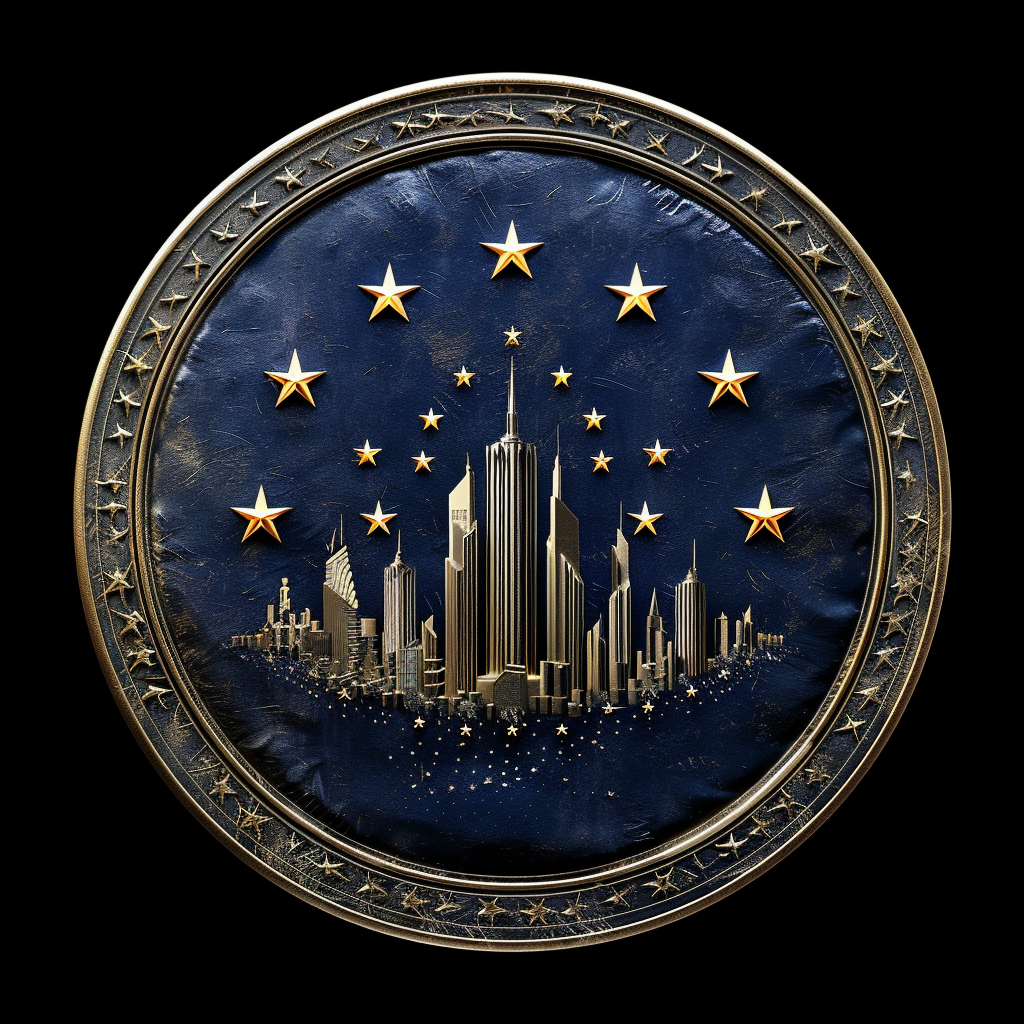
Eurocore is a major urban conglomerate on Earth formed through the consolidation of Western European nations and subsequent expansion to include Russia and surrounding Slavic territories. With a population of approximately 200 million, it represents one of the largest and most culturally diverse human settlements in the Corporate Era. The region emerged as a response to economic necessities and environmental challenges, evolving into a sophisticated technological and cultural center with significant influence throughout human space.
Eurocore encompasses major parts of Western Europe, including France, Germany, Belgium, the Netherlands, parts of Italy and Spain, Russia (including Ukraine, Poland, and other Slavic communities), and portions of the former United Kingdom. The region features a dense network of interconnected urban centers, preserved historical districts, and advanced transportation infrastructure. Its eastern expansion incorporated vast territories previously belonging to the Russian Federation and adjacent nations.
The foundation of Eurocore began with an economic partnership between seven core regions—Germany, France, Belgium, the Netherlands, Italy, Spain, and portions of the United Kingdom. This initial alliance focused on shared economic interests and collaborative governance in response to global challenges.
As climatic shifts and economic instability intensified, Russia and surrounding Slavic countries experienced severe economic collapse, prompting their integration into the expanding European coalition. This assimilation required substantial economic support and rehabilitation efforts from the original partner nations, creating lasting sociopolitical tensions that continue to influence regional dynamics.
The name "Eurocore" was specifically chosen to emphasize the centrality of the original seven partners, a linguistic decision that reflects ongoing cultural divisions between the "core" western territories and the eastern expansion.
Eurocore operates under a complex parliamentary system that integrates regional governments within a unified federal framework. This structure emphasizes collaborative governance, human rights protection, and technological innovation while attempting to balance the diverse interests of its constituent territories.
The parliamentary model incorporates representatives from all regions, with special provisions to ensure equitable representation for both historically dominant and newly integrated areas. Decision-making processes prioritize consensus-building while maintaining efficiency through sophisticated AI-assisted analysis and projection systems.
The Eurocore economy represents a sophisticated blend of traditional European industrial strengths, technological innovation, and resource management. The region maintains significant influence in global trade networks, particularly in specialized manufacturing, financial services, and cultural exports.
A notable economic characteristic is the region's emphasis on balancing technological advancement with preservation of traditional craftsmanship and cultural production. This approach has created a distinctive economic profile that combines cutting-edge innovation with historically grounded industries.
Eurocore's cultural landscape reflects its complex historical development, characterized by both integration and preservation of distinct regional identities. The region's official motto, "Unity in History, Innovation for Tomorrow," encapsulates its dual commitment to honoring cultural heritage while embracing technological progress.
The Eurocore flag features a field of deep blue representing unity and historical depth, with twelve golden stars forming a circle symbolizing the original founding regions. At the center, a futuristic city skyline embossed in silver denotes the region's forward-thinking orientation.
While English serves as the primary political language of Eurocore, the region maintains extraordinary linguistic diversity, with Russian, French, German, and numerous other languages in common usage. The integration of Slavic territories has particularly influenced the linguistic landscape, introducing elements of Russian and other Slavic languages into the common vernacular.
This linguistic influence has been amplified by two factors: the prevalence of Slavic/Russian workers in space mining operations, and the widespread use of surplus Russian military equipment with Russian-language instruction manuals and software in early space exploration efforts.
Eurocore maintains complex relationships with other Earth regions. It enjoys robust trade partnerships with Canamer despite political differences, while experiencing ongoing tensions with Sinosphere regarding security concerns. Relations with Amazonia frequently involve environmental disputes, reflecting different approaches to ecological management and resource utilization.
Internally, Eurocore politics are characterized by sophisticated technological integration, with elections and debates conducted through immersive virtual environments and advanced data analysis systems. Political discourse emphasizes environmental sustainability, economic innovation, social equity, and technological integration, with extensive citizen participation facilitated by advanced communication systems.
As one of Earth's principal population centers and cultural hubs, Eurocore represents a crucial nexus in humanity's adaptation to the challenges and opportunities of the Corporate Era. Its distinctive approach to balancing historical awareness with technological innovation offers a unique model of human development in an increasingly complex interstellar civilization.
The wealth and power of EuroCore was built on interstellar mining and extraction. The struggling countries being consumed by the EuroCore eastward expansion were primarily Slavic/Russian people, and these people were most likely to take the dangerous and gritty jobs mining in space. The mining and survival equipment many of these workers took to space with them was surplus from the long disbanded Russian military, meaning that Russian was the most likely language for instruction manuals and software.
"In Eurocore during the Corporate Era, a middle-class person's day is often structured around the delicate balance of work, family, and civic engagement within a technologically advanced yet historically rich backdrop. The morning begins with a wake-up call from a smart home system, gently illuminating their apartment with soft light while brewing fresh coffee. Breakfast consists of locally sourced, organic foods, perhaps paired with artisanal bread from the nearby market, fueling them for the day ahead. They commute to work in a sleek, energy-efficient public transport system, seamlessly integrated with augmented reality displays that provide real-time updates on news and local events. At their job—likely in a technology-focused role or a corporate office—they engage in collaborative projects, using advanced tools that enhance productivity and creativity, often participating in virtual meetings with teams across the continent. Lunch breaks are an opportunity to socialize with colleagues at trendy cafes, where discussions about social equity and environmental policies pepper the conversation. Evenings are spent enjoying family time, attending community events, or partaking in cultural activities like theater or gallery openings, reflecting Eurocore's emphasis on arts and innovation. As night falls, they often find themselves engaged in civic discourse, participating in local forums or virtual town halls to discuss community issues, driven by a desire to contribute to the progressive landscape of their city. Amid the technological marvels and sociopolitical dynamics, their life is a tapestry of modern comforts and obligations, underscored by the values of unity and sustainability that define Eurocore's ethos."
"As you traverse the tapestry of existence, please remember: each life is a story, and together, you compose the grand epic of your existence in the cosmos."
— Vov Mentis (Response 2346-2001-MK3)
Vox Mentis
a collection of fourteen autonomous AIs, interlinked by a neural network, with each AI studying a specific aspect of knowledge such as Mathematics, Social Sciences, Heath and Medicine, etc. The Vox Mentis grows and learns on its own by collecting data throughout the known universe. The Vox Mentis and humans exist independently for the most part; with humanity frequently using the Vox Mentis as an adviser and guide. (learn more)
